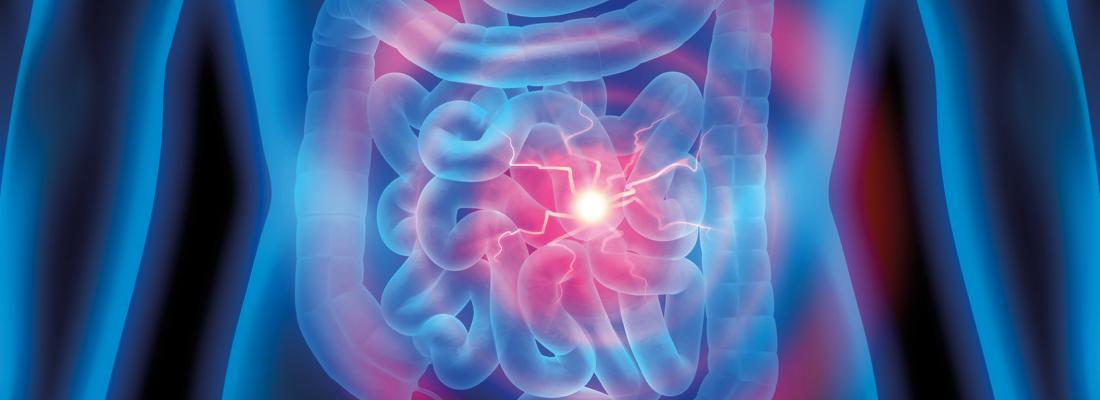Food, Global Health Reading time 2 min
Durable changes in the intestinal ecosystem: new perspectives for the treatment of chronic inflammatory diseases
Published on 06 November 2020

Colonised from birth by maternal and environmental microbes, newborns develop into human beings with an ecosystem whose own human cells and associated microorganisms live in close symbiosis. The host-microbe relationship is crucial for early development and lifelong health. The body provides "room and board" for the microbiota, which in return provides protective functions, keeps the body’s natural defences alert and prevents the proliferation of environmental bacteria in the body. Everything that happens in the intestinal microbiota has an impact on the intestinal wall and immunity, and vice versa. These complex interactions guarantee the functional robustness of the intestinal ecosystem which interacts with all organs. Under normal conditions, and even after a serious disturbance - for example, after taking antibiotics - our microbiota regains its initial state and is considered resilient.
Observed interactions between the microbiota and chronic diseases
The incidence of chronic diseases has increased markedly over the past 60 years (one person in four will be affected by 2025, according to the WHO) and most of them are associated with a loss of diversity and changes to the microbiota, often combined with abnormal intestinal permeability, an inflammatory state and signs of oxidative stress. The ERC Homo symbiosus program, launched in 2019, is designed to analyse these interactions in order to devise new preventive and treatment solutions for important chronic diseases such as inflammatory bowel, metabolic and liver diseases, Parkinson's disease, Alzheimer's disease, autism, depression, cardiovascular diseases and certain cancers. The INRAE research team proposed the hypothesis that any disruption in the parameters of symbiosis could trigger a vicious circle. Thus, changes in the microbiota and the accompanying inflammation could support each other and generate a stable and lasting pre-disease state.
From inflammation to durably affected host-microbiota symbiosis
Using an animal model, the scientists showed that the simple induction of inflammation could durably alter host-microbiota symbiosis involving changes in the microbiota and inflammation and preventing a return to normal even 40 days after removal of the trigger. Groups of rats were chronically exposed for four weeks to different doses of a chemical compound in their drinking water, causing intestinal inflammation. Scientists observed that at the appropriate dose, 80% of the animals went to a state of combined microbiota changes and inflammation, and this state persisted for a minimum of 40 days after a return to normal feeding conditions.
In humans, this would result in extreme difficulty in restoring the initial state without simultaneously acting on the host and microbiota parameters. The proof of concept described here is therefore a first which involves major challenges in terms of diagnosis, prediction, prevention and treatment. This work should foster a better understanding of the microbial status of Homo sapiens ("Homo symbiosus"), and lead to the development of new opportunities for preventive nutrition and human medicine.
|
The Homo symbiosus project (2019-2023) has received funding from the European Research Council (ERC) of 2.5 million euros over five years, enabling the operation of a community combining the expertise of INRAE (Institut Micalis, Métagénopolis and MaIAGE Research Units), the Nutrinet project of the Centre for Research in Epidemiology and Statistics (CRESS - Sorbonne Paris Cité - INSERM) and a research team from Paris Public Hospitals (AP-HP). Staff resources have been reinforced by the recruitment of three young postdoctoral researchers, two PhD students, a laboratory technician and an executive assistant. |
Reference
Van de Guchte M, S Burz, J Cadiou, J Wu, S Mondot, H Blottiere & J Doré. 2020. Alternative stable states in the intestinal ecosystem: proof of concept in a rat model and a perspective of therapeutic implications. Microbiome. https://doi.org/10.1186/s40168-020-00933-7
